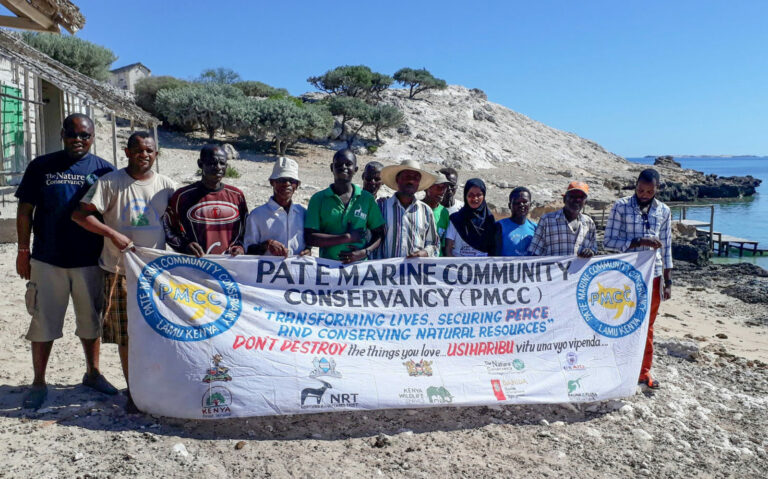Learning exchange programmes have proven a highly effective way of engaging fishing communities and partner organisations in peer-to-peer learning, to energise and inspire those wishing to share knowledge and expertise in fisheries management and marine conservation.
In April 2018 seven representatives from northern Kenya, from TNC Kenya, the Northern Rangelands Trust and the Pate Marine Community Conservancy (PMCC) joined Blue Ventures staff and partner communities in southwest Madagascar for an eight-day exchange aimed at increasing linkages and knowledge on locally managed marine areas (LMMAs) and other community-based management practices.
Almost 15 years ago, in a remote corner of southwest Madagascar, Blue Ventures supported the village of Andavadoaka to temporarily close a small reef to octopus fishing to see if this might boost declining catches.
When the closure was lifted, fishers caught far larger octopus – and far more of them. So impressive were the results, that before long nearby villages were establishing closures of their own, and starting to think about more ambitious marine conservation efforts. Within three years, Andavadoaka had joined forces with two-dozen neighbouring villages to create the Velondriake Locally Managed Marine Area in which communities established permanent reserves off limits to all fishing and banned destructive practices such as poison fishing.
This use of short-term closures as a catalyst for conservation has since grown along many hundreds of kilometres of Madagascar’s coastline, reaching around 133,000 people and inspiring a grassroots marine management movement that has seen more than 70 LMMAs established to date, covering over 17% of the island’s inshore seabed.
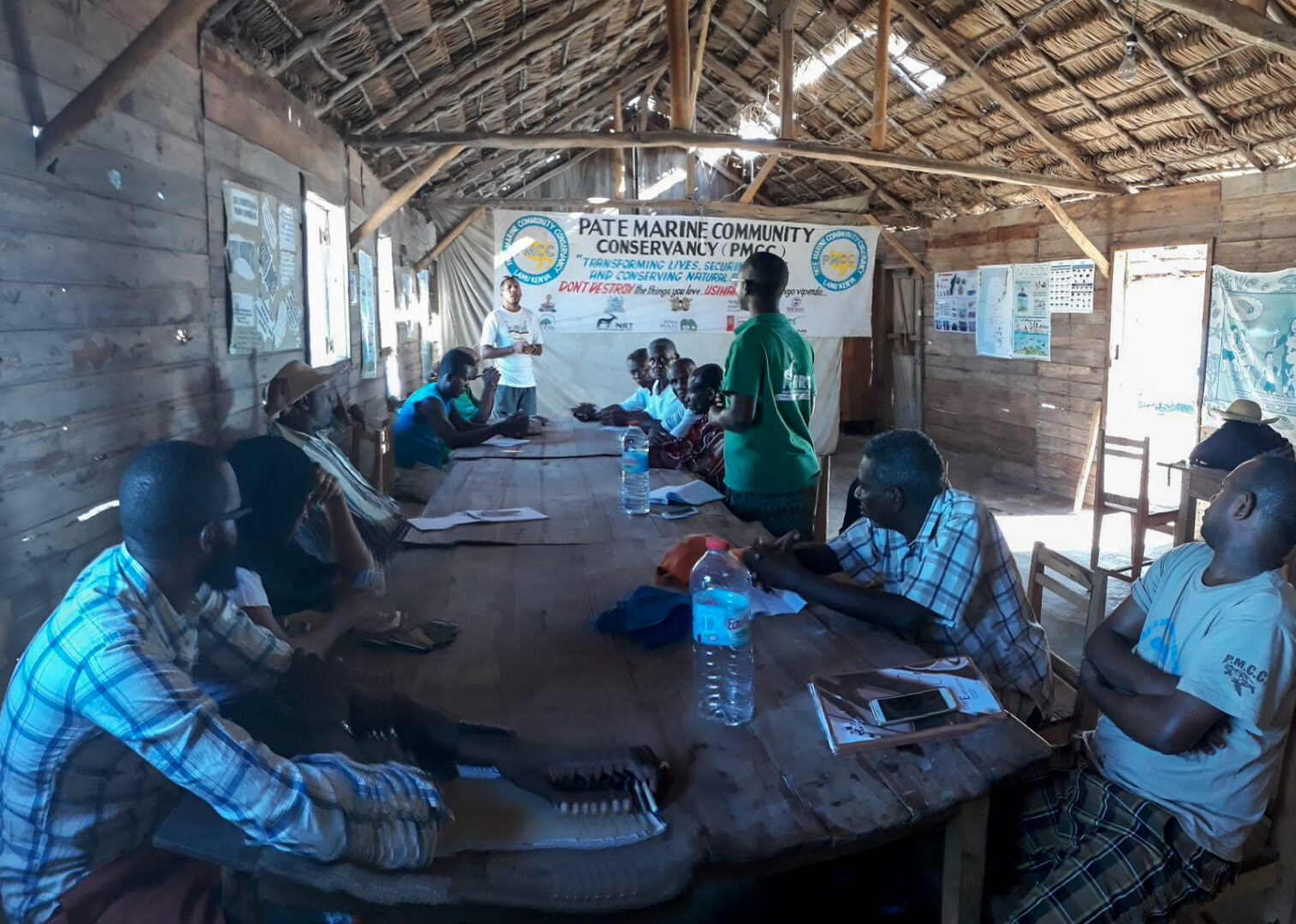
Aiming to share the success of this model, Blue Ventures now collaborates with like-minded organisations to apply and adapt this approach in new geographies. Blue Ventures offer toolkits, training, technical advice, mentoring and learning exchanges – such as this recent visit from the Kenyan representatives – to guide partners through every step of the process. Blue Ventures is focussing efforts in the Western Indian Ocean and Indonesia and are seeing growing interest and new partnerships across these regions.
Whether it’s how to organise a temporary fishery closure to catalyse community engagement in marine conservation or how to work holistically and integrate reproductive health services with such initiatives to enhance women’s participation in local environmental management efforts, Blue Ventures is dedicated to supporting our partners to build on their experiences. The collaborative relationships with partners are centred on mutual exchange, as we seek to share experiences openly across different contexts and learn from each other.
Since 2012, The Nature Conservancy and NRT- Coast have been working together with fisher communities, government agencies and other partners in northern coast of Kenya to build capacity and skills for community-based fisheries management. They have helped fishers establish LMMAs, design and enforce science-based management and monitoring plans and pilot enterprises that incentivise sustainable resource use. Through PMCC, ten fisheries Beach Management Units in Pate Island in Lamu established fisheries co-management areas covering the entire island. Their zoning plan includes no-take zones, species-specific zones, seasonal closures, gear restriction zones and a multi-use zone. The community has already implemented three no-take-zones where all kinds of fishing are restricted. With this ambitious plan, the Pate Island fisher community needed some motivation from peers implementing similar fisheries co-management initiatives to share lessons and learn new best practices.
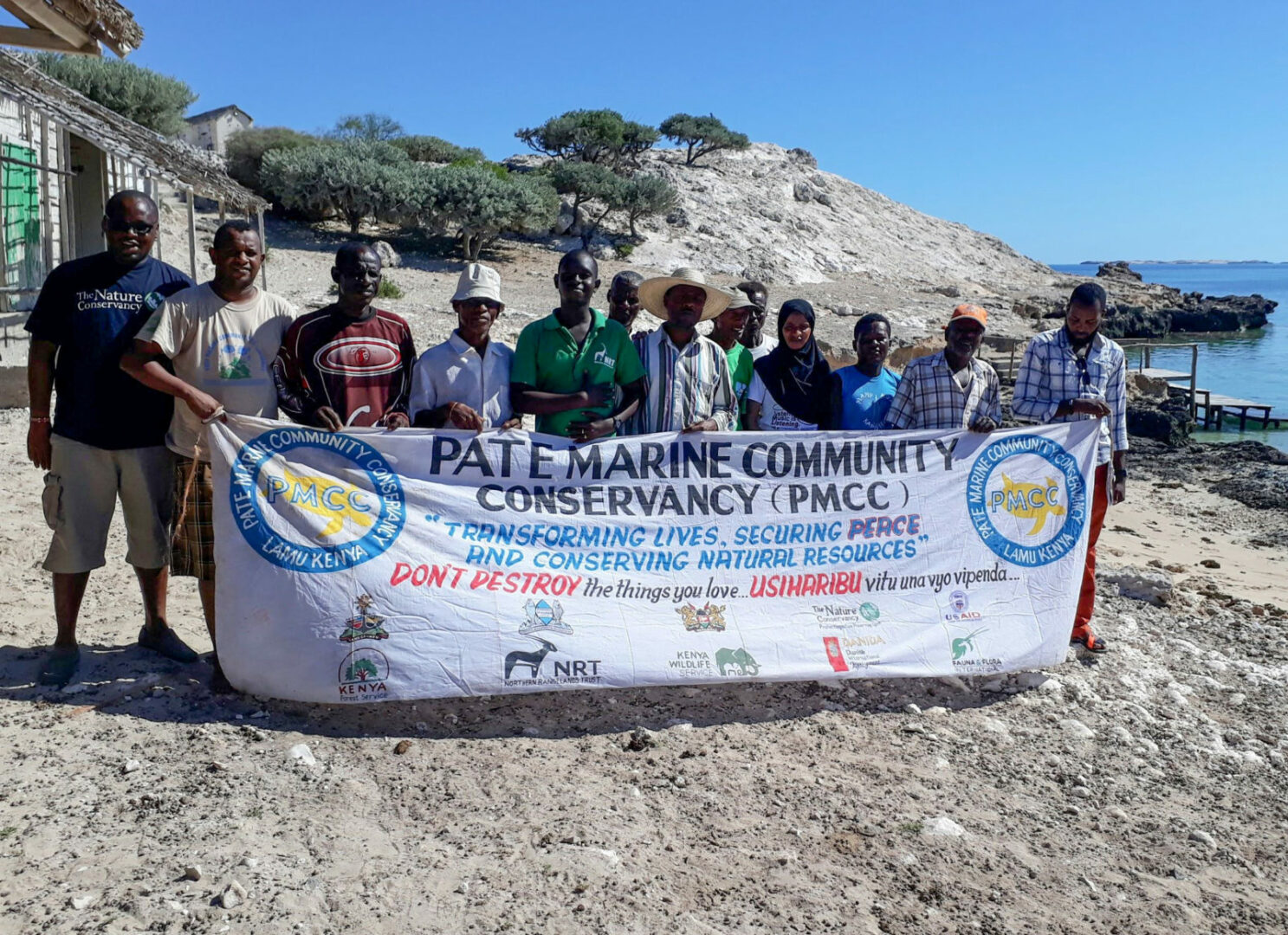
George Maina, TNC’s Fisheries Strategy Manager for Africa, said the visit to southwest Madagascar enabled Pate Island and Andavadoaka fishers to share their experiences and learn some innovative ways to improve the management of their local fisheries.
The site visits were a useful source of information exchange where best-practice ideas from Kenya and Madagascar were discussed including opportunities for collaboration. During a post-learning exchange meeting, Bakari Bunu, a fisherman, community elder and board member of PMCC summed it up by saying that “regardless of our expectations and personal objectives, we all have learnt something new from the trip, particularly about temporary octopus fishery closures and wider LMMAs; the local customary traditions and their application in conservation, sea cucumber farms, and women’s participation in conservation and community development. I now appreciate the great importance of having strong local leadership championing local conservation and development efforts within the community”.
Hassan Yussuf, Deputy Director of NRT-Coast who was also part of the exchange, said the visit has already motivated several representatives to hold meetings with their partner communities in Kenya to discuss the marine management models and alternative livelihood initiatives they witnessed in Madagascar, and are planning to explore the potential for local replication. The Pate Island village of Shanga Ishakani has already proposed to trial two sites as temporary octopus closures starting July 2018.
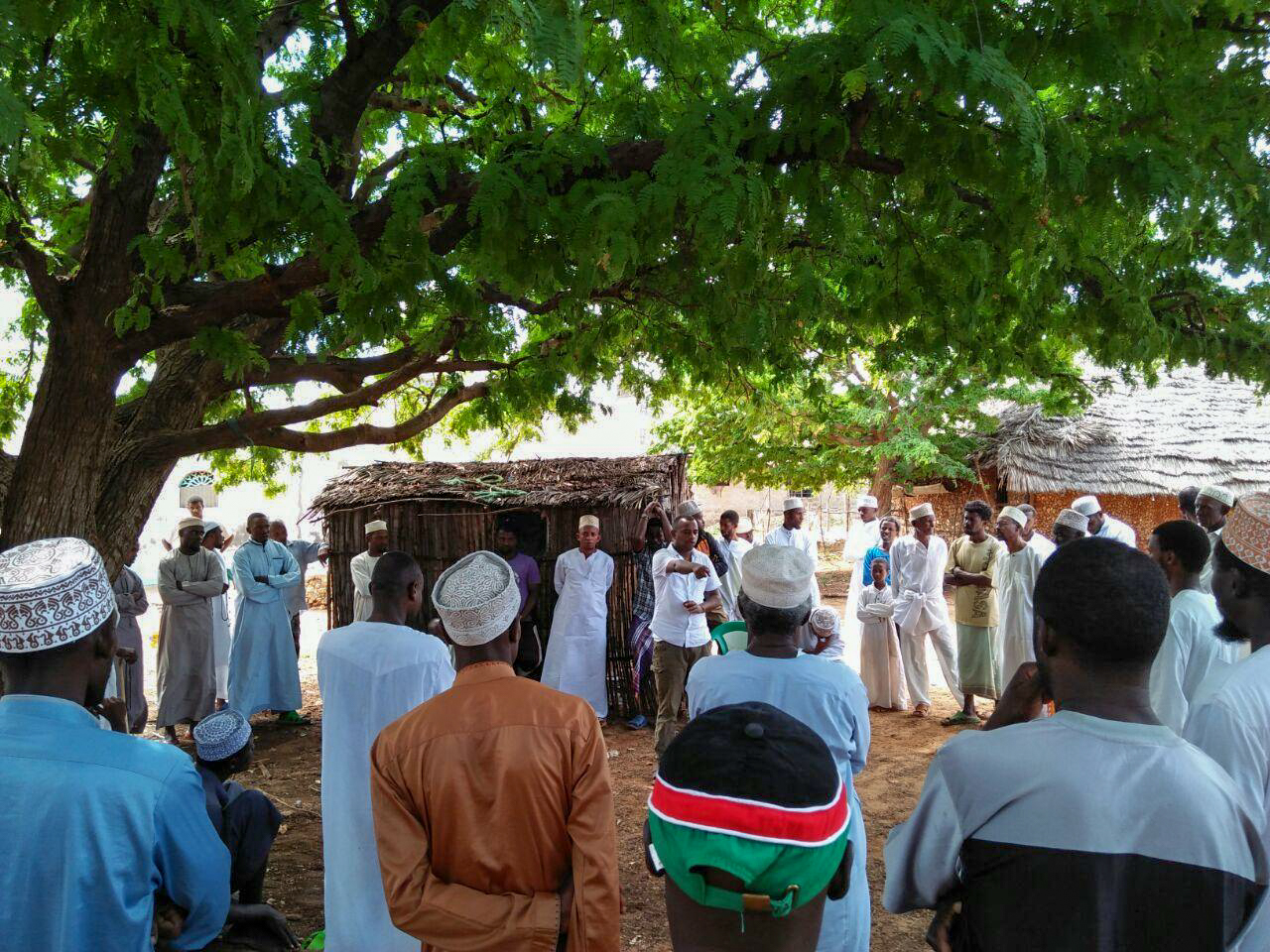
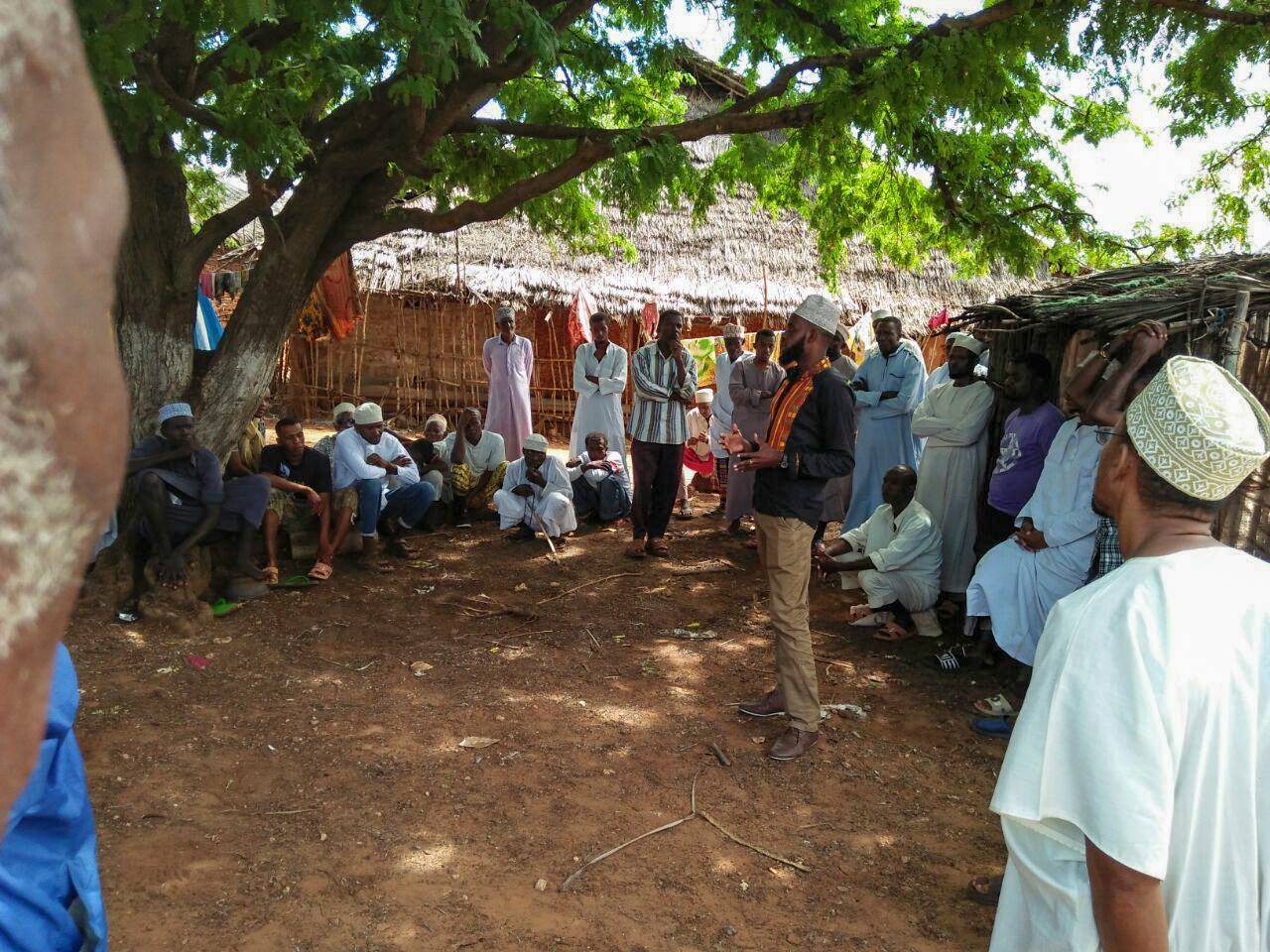
The two photos above show a post learning exchange feedback meeting at Shanga Ishakani village, Pate Island, held after returning back. During this meeting, consensus to trial temporary octopus closures at two sites adjacent to the village was established.
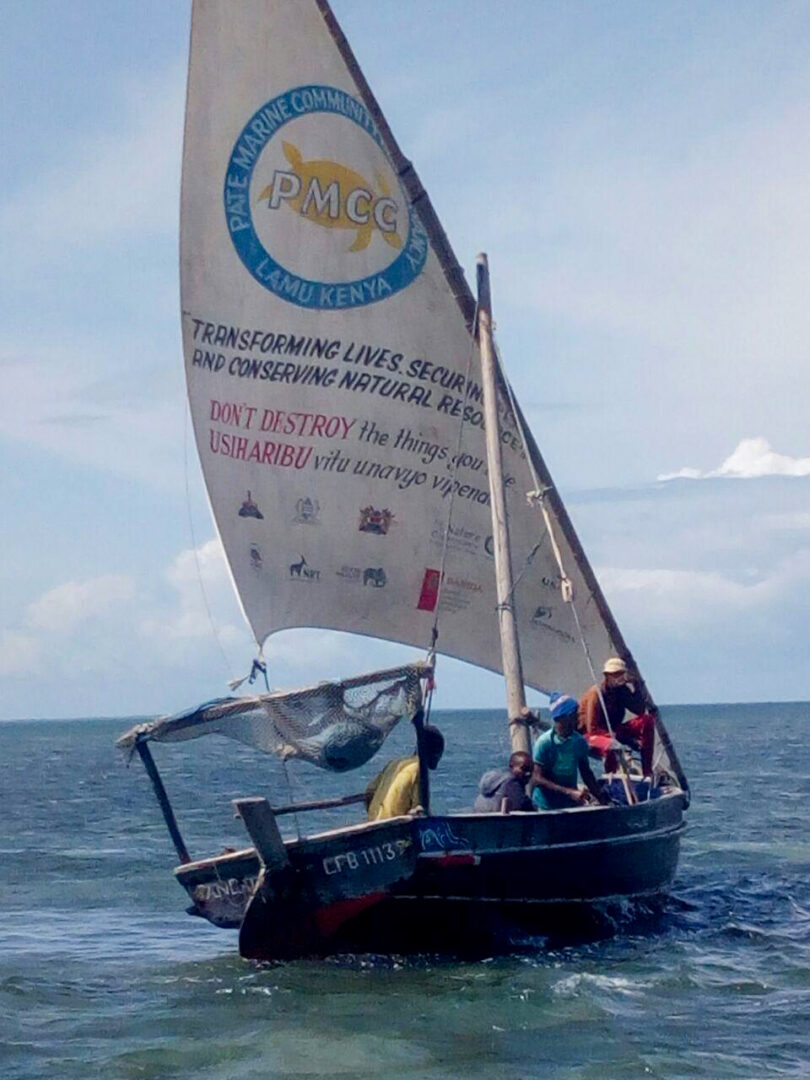
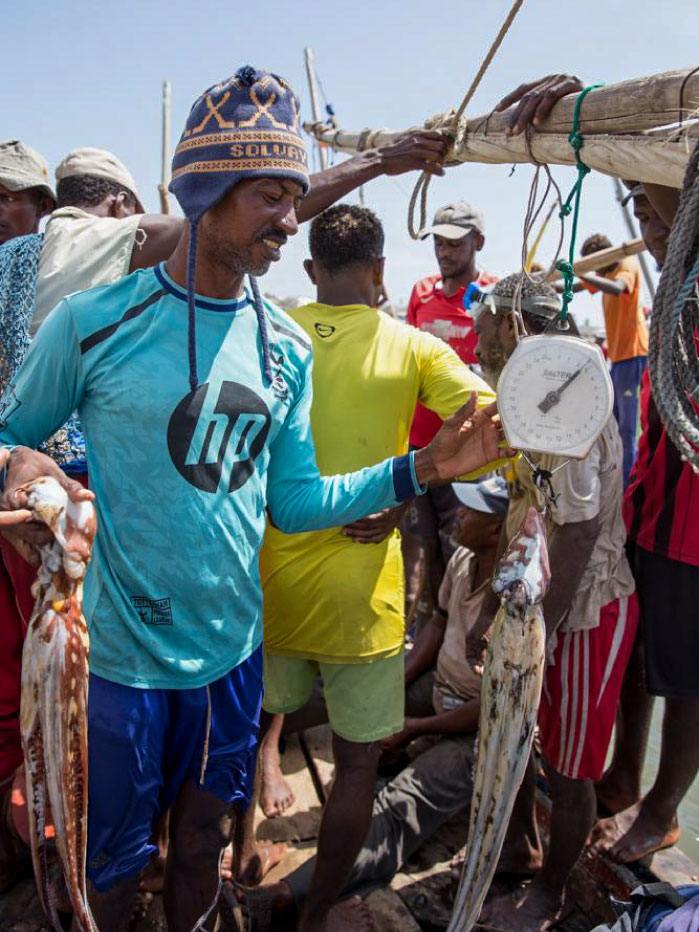
By creating a hands-on environment in which communities share their own experiences, exchanges can play a powerful role in inspiring local action to improve fisheries management and conservation. We are committed to this form of hosting and sharing learning, building networks of like-minded communities and organisations, because time and again we’ve seen how inspired participants become. We’ve come along way since that day when the octopus fishery opened all those years ago in Andavadoaka, as we join with partners and communities across the tropics on a journey that we hope will benefit millions of people in coastal communities.
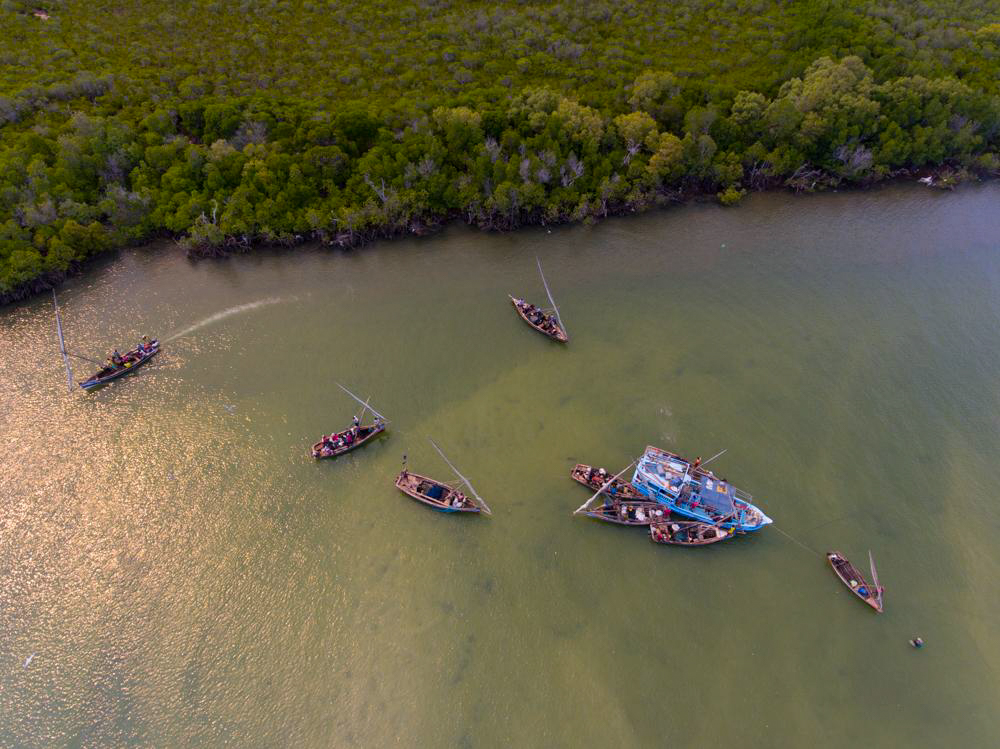
The learning exchange to Madagascar was generously supported by The Nature Conservancy.
Posted by Rupert Quinlan (Blue Ventures) and George Maina (The Nature Conservancy).
Contact Rupert Quinlan for further information
Find out more about our work supporting partners
Join us on our journey

